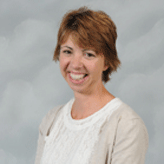Departments & Subjects
Our mission is to work with parents and the local community to provide a broad curriculum and a creative approach to learning. Our intent is to enable all students to fulfil their unique potential and make the world a better place through their informed choices and actions.
Our curriculum meets the requirements of national guidelines and explicitly intends to support students to become :
English

HEAD OF DEPARTMENT: Mrs Preston
“Yet language, as we are all aware, is a human birthright.”
Stephen Fry
Intent:
In the English department we are passionate about equipping pupils with literacy skills for life. We aim to encourage debate and discussion, promote a love of reading and develop independent and critical thinking. We believe that providing a rich and varied diet of reading across our literary heritage will enable pupils to understand our culture and the world around them. We seek to inspire pupils by reading and emulating the work of wordsmiths from our literary canon – from great novelists and poets to skilful orators. Effective communication in both spoken and written form lies at the heart of our subject. We believe that by promoting discussion and collaboration our pupils can take their place as effective communicators in the wider world.
Media Studies can be taken as a GCSE option subject, with study beginning from Year 9. The Media Studies course enables students to pursue a range of academic interests and disciplines within the scope of a subject that is of increasing relevance to the world we live in. In learning about forms of mass communication, students are encouraged to draw on their existing experience of the media and to develop their abilities to analyse, as well as to create their own media products.
Aims
- To increase ‘media literacy’ and to provoke meaningful questions about the influence of the media world, as experienced on a day-to-day basis.
- To study across a range of different Media including broadcasting forms like TV, Video Games and Music Video, Online forms and Print Forms.
- To provide extensive and meaningful coverage of media theory and up-to-date media practice and technologies.
- To use creativity to produce media products based on the application of media theories and concepts.
- To provide opportunities to learn about real media products and industries.
Content:
Year 9 |
Year 10 |
Year 11 |
|
|
|
|
|
|
|
|
Assessment:
Paper 1 Examination (1 hr 30 min)– 35% of total marks. The exam will include a mixture of multiple choice questions, short answer questions and one extended response question assessing breadth of knowledge and in-depth knowledge of the media. Part of the exam will involve analysis of both an unseen media text and texts studied in advance of the examination.
Paper 2 Examination (1hr 30 Min)- 35% of total marks. This exam focuses on textual analysis and will include a mixture of multiple choice, short answer and extended response questions. Students have to draw upon their knowledge of the ‘close-study products’ they will have studied during year 10 and 11.
Non-Examination Assessment–30% of total marks
Students complete a ‘Practical Production’ piece that is linked to a contemporary media issue.